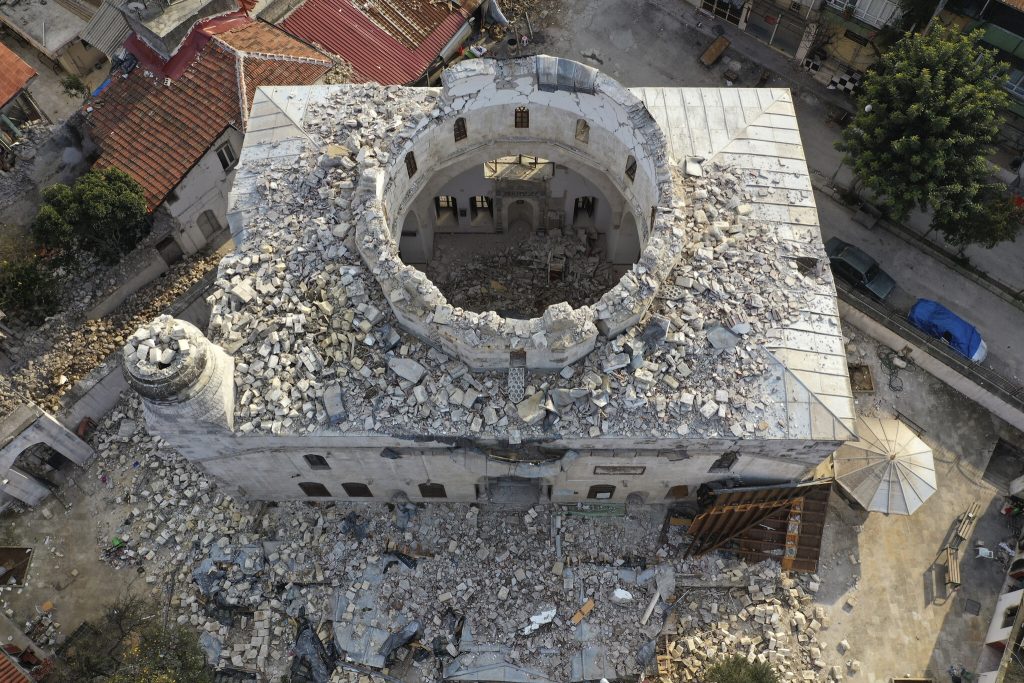In an interview with the Hürriyet Daily News, United Nations Resident Coordinator Alvaro Rodriguez has expressed his observations of the post-earthquake national and international efforts for the revival of 11 provinces that were severely hit by the twin earthquakes that killed more than 48,000 people in Türkiye and more than 5,000 people in northern Syria.
“The scale of the devastation was extraordinary. I have never seen anything like that before although I have been involved in other earthquakes,” said Rodriguez, describing what he saw in the region as “dramatic.”
“It was extraordinarily dramatic. In different places, different types of dramas: In Kahramanmaraş, for example, you see pockets of neighborhoods that have completely disappeared with, of course, thousands of lives and injured. In Hatay, it seems to me that the entire city just stopped at 4.17 a.m. on Feb 6. It is almost all devastated even some buildings remain. So that was dramatic,” he said.
The response, both from the Turkish side and the international community, was also dramatic, he underlined, noting “We never had a search and rescue operation as large as this one in world’s history. There have never been as many international teams with so many people, so many dogs and technology leading to the highest number of rescues anywhere in the world.”
On criticisms that relevant national institutions were delayed in responding to the earthquakes, the envoy underlined that the Feb. 6 earthquakes happened in an area much bigger and more populated than the 1999 earthquake in the Marmara region. “So, one would naturally expect that the first few days would be hard. That is not a justification. But the scale was so unprecedented that I cannot imagine that being any different somewhere else,” he stated.
Humanitarian aid funds are insufficient
There are still humanitarian needs and they are underfunded by the international community, the envoy stressed, depicting this as one of the challenges Türkiye is facing nowadays.
The number of people heavily impacted of the disaster is 5.2 million with 1.7 million of them refugees, Rodriguez recalled, “Not everybody will get everything at the same time. And there will be frustration and it is inevitable. With the change of the weather, I hope it will be warmer, but after a point it will be too hot to be in tents. So, moving from tents to prefabs or containers is quite important.”
On a question, the U.N. envoy said he has guaranteed by Vice President Fuat Oktay that there will be the same level of support for everybody impacted, whether refugees or Turkish citizens. “And that makes sense because you don’t want those refugees to be left further behind in development. You also want to them to return to any livelihoods they have, you don’t want their children miss school and get unhealthy. Because in the end that is a problem for the country as a whole.”
World should be generous
With calculations that Türkiye might need more than $100 billion for reviving the cities and life in these provinces, the resident coordinator called on the international community to be more generous.
“In terms of whether the international community will or should be generous, our principle is very clear: They should be very generous with Türkiye. Some people remind us constantly that, for the last decade, Türkiye has hosted about 4 million refugees. There is international support that goes to the government and the U.N. agencies support these refugees, too, but the bulk of the cost comes from the country. The international community cannot forget that.”
‘Build back better’
On recovery and reconstruction, the U.N. envoy stressed that the earthquake has shown that there were poor construction standards.
“Maybe now better understanding on how the fault lines work and the level of devastation that can happen when they move, [shows you] that you need a different kind of planning with low-rise buildings, scattered cities and even moving some of the parts of the cities to have better urbanization. The principle we use is we should build back better,” he stated.
“What we are discussing with the government is this principle of build back better. And I think technical know-how exists in Türkiye,” he added.
hurriyetdailynews.com
